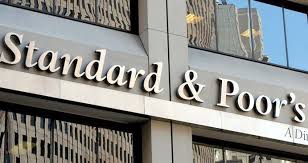
KUWAIT: Standard and Poor's lowered Kuwait's rating to AA- from AA due to low oil prices, given the country's high reliance on hydrocarbon exports and slow reform progress, but projected a stable economic outlook. "The oil price drop is happening alongside Kuwait's slow reform momentum, which has generally lagged that of other regional countries in recent years," S&P said in a statement obtained by KUNA. Therefore, it noted, it lowered long-term foreign and local-currency sovereign credit ratings on Kuwait from AA to AA-.
However, S&P said the "outlook is stable because we believe Kuwait's sizable fiscal and balance-of-payment buffers provide the government with headroom for policy measures over the next two years". The stable outlook reflects balance between risks from Kuwait's high reliance on hydrocarbons sector and delays to structural reforms, against the country's sizable accumulated fiscal and balance-of-payments buffers, which provide the authorities policy space to maneuver over the short to medium term, it said.
S&P also affirmed its A-1+ short-term foreign and local currency sovereign credit ratings. The rating agency said it could raise the ratings if wide-ranging political and economic reforms enhanced institutional effectiveness and improved long-term economic diversification, "although we think such a scenario is unlikely over our forecast horizon 2020-23". It mentioned oil prices and said they plummeted after the OPEC+ failure to agree on further production cuts during meetings on March 6.
It expected Kuwait to increase output to above budgeted levels of 2.8 million barrels per day (bpd), which should provide some short-term economic support. S&P said around 80 percent of Kuwait's exports are destined for Asia, where several countries have already been substantially affected by the coronavirus outbreak, leading to a contraction in oil demand.
S&P said the outbreak forced businesses to shut down for four weeks, alongside a partial curfew; thus it projected GDP per capital at just under $22,000 for 2020, down from $29,000 previously. It said Kuwait has also yet to pass a revised debt law authorizing the government to borrow, raising questions about how future central government deficits will be financed.
"We forecast that, in line with lower oil prices, Kuwait's general government balance will be in deficit exceeding 10 percent of GDP in 2020 before gradually returning to surpluses over the medium term," it said. Importantly, S&P said its ratings on Kuwait remain supported by the country's substantial amounts of accumulated fiscal and external buffers, which "we project will average close to 500 percent of GDP over the next four years and afford the authorities room for a policy response". - KUNA










